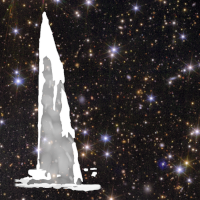Speaker
Description
Light propagation in cosmology is usually studied in the geometrical optics approximation which requires the spacetime curvature to be much smaller than the light wavenumber. However, for non-fuzzy particle dark matter the curvature is concentrated in widely separated spikes at particle location. We consider a post-geometrical optics approximation that includes curvature and solve the Maxwell's equation in curved spacetime. We model the dark matter particle as interior Schwarzschild metric and propagate a plane light wave through it. For this, we numerically evolve (using the Einstein Toolkit framework) the Maxwell's equation in curved spacetime. Here, we expect to observe photons gaining a gravity-induced mass when travelling through dark matter, and light paths are not null nor geodesic.

